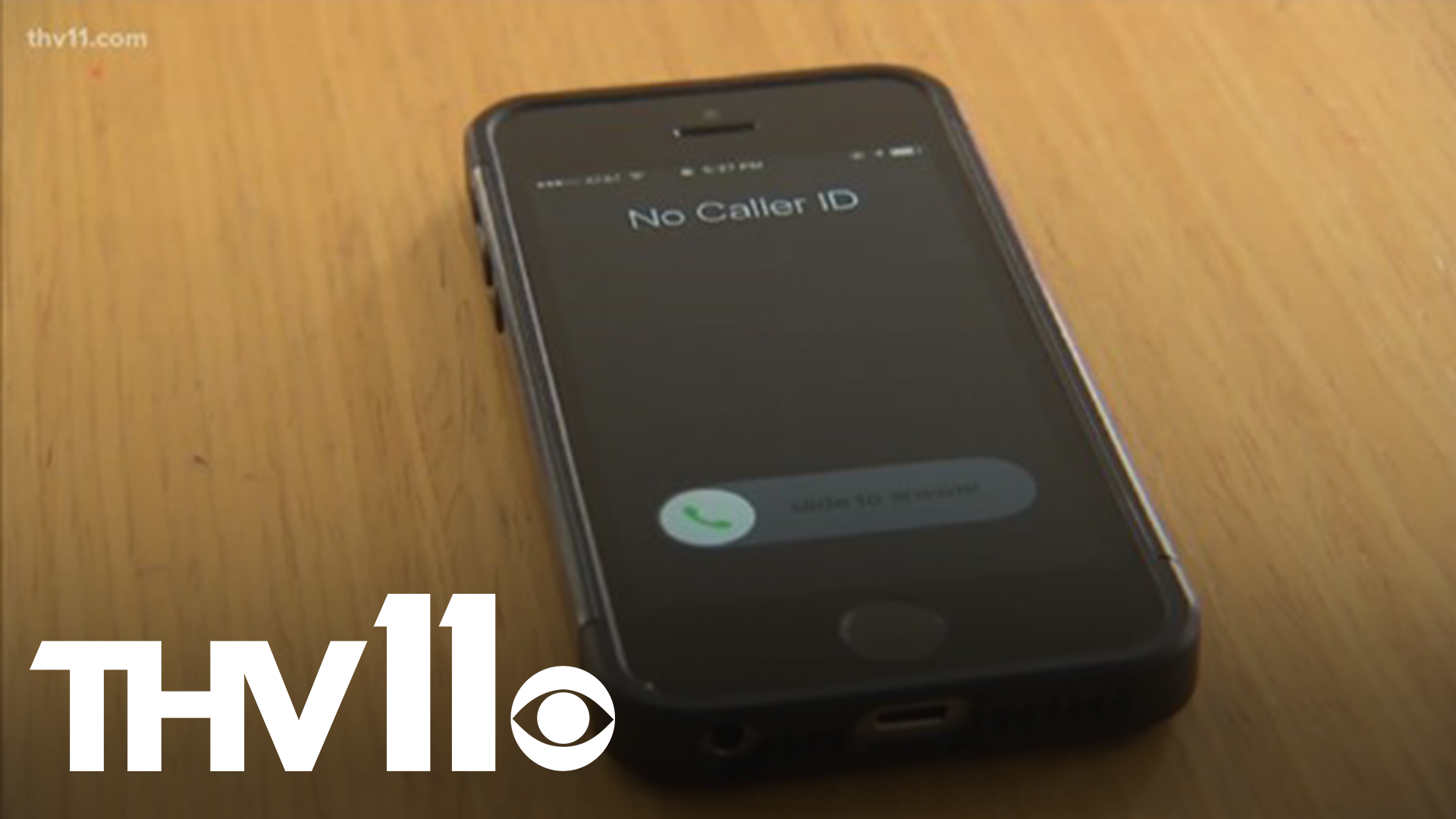LITTLE ROCK, Ark. — Almost two years after laws went on the books trying to curtail robocalls in Arkansas, the attorney general of the state thinks she's found the culprit standing in her way.
"The technology is there," Leslie Rutledge said. "We have to require these phone companies to stop those robocalls."
Back in 2019, the Republican chief law enforcement officer in the state beamed from behind Governor Asa Hutchinson after laws she pushed got his signature.
"People are sick and tired of their phones ringing off the hook and it's nothing more than a scam artist calling," she said at the time. "I am determined to stop these calls."
Saying it and doing it have proven to be two different things. The calls keep on coming and the reasons we all hate them haven't changed.
"When there is a company that only has one person, it's really hard for me to answer the phone while trying to maintain a relationship with the person that I'm working with," said David Stacy, a tax accountant in the middle of his busy season.
He filed a complaint with Rutledge's office because he can't afford to risk losing business if he ignores a weird area code, but he also has a medical reason - a benign brain tumor - that makes a robocall worse for him.
"I have an acoustic neuroma and that affects my memory," he said. "Whenever I get interrupted in the middle of trying to do something, it takes me five to 15 minutes to get back to where I was."
By the numbers, new laws haven't made much of a dent in the call volume, and the pandemic appears to have raised the stakes when it comes to elevating the dangers of the calls.
Little Rock-based technology company First Orion has been working on solutions for at least three years. Their analysis says Americans fell victim to mobile phone scams 270% more often in 2020.
Based on an index complied by Youmail, the tougher laws took effect in 2019, right when the Little Rock metro area got rung up almost 330-million times. But then last year, we ended up getting more calls than in 2018. And already in 2021, the index counts 52 million calls in two months, putting us on pace for 312 million.
"While we've made progress by passing legislation by requiring phone companies to file with the public service commission, the best way is going to be for the F.C.C, the Federal Communications Commission, to require our phone providers to stop those calls," says Rutledge.
In addition to the F.C.C., stopping the calls will take officials with the Federal Trade Commission. Our fellow TEGNA investigators in Washington have been speaking with officials from both the Trump and Biden administrations to get a roadmap for their plans.
Meanwhile at the state level, an important facet of the anti-robocall law is an annual report from every mobile phone provider detailing what they're doing to stop the calls.
Those reports are submitted to the Public Services Commission. They are public, but not easy to find. You have to know the specific docket number to search for them on the commission's website. All the major carriers are there. Many detail the extra fees they charge for more robust call blocking features, but then others filed court documents that got their reports partially redacted. That includes the company that eventually merged with T-Mobile, whose report cites trade secrets for holding back information.
Customers like Stacy question how willing the providers will be to stop the calls when blocking programs provide them a revenue stream.
"I have blocked so many numbers that my phone won't let me block anymore," he said.
That's why Rutledge is working with her counterparts in other states and counting on help from the feds, but she still has an appeal she hopes their marketing departments hear.
"I have told so many phone providers, if you will stop unsolicited robocalls that change their caller ID, I can assure you that Arkansans will flock to your service," the attorney general said.
In the weeks to come, we will report on where these calls come from, the victims, and most importantly -- solutions.
To see how Little Rock compares with other metro areas across the country, check out the YouMail Robocall Index.

